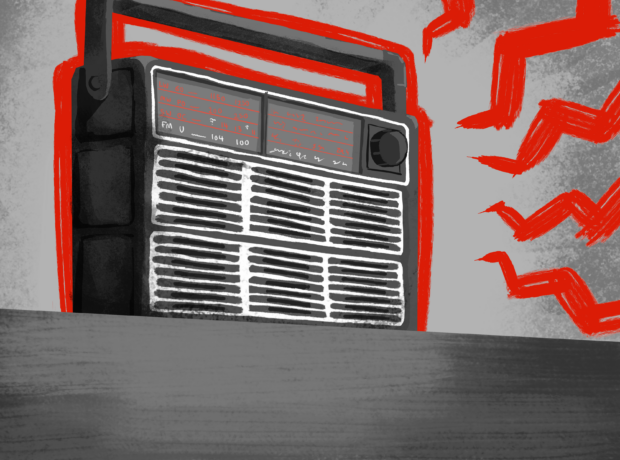How can you build a career in law that genuinely helps people? How can you avoid “selling out”? And what do you need to do to make your application stand out from the crowd? Philippa Wheeler, a solicitor at top law firm Leigh Day, shares her route into the role and offers advice for aspiring lawyers.
“I always knew I wanted to go into law. It’s so clichéd – everybody always says: ‘I want to go into law to help people’ – but, I wondered, how many people do?
“I did the European Law four-year degree at Warwick with a year abroad in France. I remember going to the Law Fair at Warwick when I was an undergraduate. I picked up so many freebies that I really didn’t want, like pens and mugs, by pretending I wanted to do tax law, but the actual ‘helping people’ element was so lacking in the displays. I then did a master’s at SOAS in human rights, justice and conflict, which solidified for me that I couldn’t ‘sell out’ and that I really did want to help people.”
What interests you about law and how did you know you wanted to be a lawyer?
“One of my favourite aspects of the law is how there are two sides to the same coin, and they are not necessarily wrong. I remember being told once in a lecture at Warwick that truth is subjective. That really stuck with me. In practice, the law is never about finding a truth, it’s about finding which truth the law prefers.
“What’s particularly interesting about practising in people-focused areas of the law is that there isn’t a clear path to the jobs available. It’s not nice to not know where you are going, or have a clear path outlined for you to qualify, so you really have to feel strongly that this is what you want to do. I didn’t give up on the idea, but I knew that I would find whatever way I could to get a foot in the door.”
How did you get your first job in law and how did you qualify as a solicitor?
“After my master’s I worked full-time and did the LPC in the evenings. It was two years that demanded perseverance and determination – it was a lot of work. At this time, I worked for a year in a legal aid firm doing mental health law. Then I moved to Leigh Day [a UK-based solicitors firm working for people who have been injured, discriminated against, or had their human rights abused] and worked as a paralegal for two years doing clinical negligence. I stayed here when I got my training contract and have just qualified as a solicitor.
“People talk about getting stuck in ‘paralegal purgatory’, but if you are concerned about this I think it’s important to ask, why are you wanting to do the job in the first place? If you want to be working with people, helping people, you’re still doing that job and getting paid for it. Paralegal work is very varied. You could do anything from data entry to instructing experts and going to conferences. That experience is invaluable.
“Now, I practise in civil litigation and product liability. What’s particularly interesting about civil litigation is that every step of the process is verified by a statement of truth. What is your truth isn’t necessarily someone else’s truth, and often these are opposites. That’s the nitty-gritty of what we do – working out, ‘Well, this is what we want to present, this is our case’. This is dispute resolution, and the other people have as much belief in their truth as we do in ours.
What does a product liability solicitor do?
“I think it’s best to consider what you buy in a day: a bike, a sandwich that hasn’t had the allergens labelled on it correctly, etc … anything in the day can go wrong. Product liability is about ensuring that people are entitled to purchase things that are safe and not defective. We specifically help people who have been injured as a result of products that were not safe or were defective, using the Consumer Protection Act and the Consumer Rights Act. The client will say, ‘We bought this scooter for our child and it broke. What do we do?’ and then you have to apply legal skills to whichever area of law you get presented with.
“It would be great if we were all out of a job because the government provided injured people with sufficient care, but they don’t. People who are injured have a right not to suffer and to have financial redress. Tort law is about putting you back in the position you were in, but obviously you can’t really do that. Probably the worst part of my job is saying to people, ‘You’ve been injured and it’s worth this much money according to the guidelines.’ If a case is very low value, it’s very difficult for us to take it on from a proportionality basis and it’s heartbreaking. But it’s always brilliant when you can settle a case and bring in funds.
“Everyone thinks being a lawyer is going to court, but 95% of our cases settle outside of trial. An email can pop up from a defendant saying, ’Here’s a pot of money and we want to settle the case’ and you think, ‘Right, that’s going to change what I’m doing today!’
“I think my career is going to be 40 years of thinking, ‘This is going to quieten down when this case settles’, and it never happens!”
What careers advice would you give to law students and aspiring solicitors?
“When applying for jobs, you have to work to make what’s available to you into the shape you want it to take. I moved from mental health law to clinical negligence, which I knew was a step that I could take. You also have to learn how to present your experiences in ways that show the skills that law firms want. Legal work experience is great, but you might have great experience at time management because you’ve worked a job while studying, or because you’ve managed people.
“The main thing I see is that people under-sell themselves. I set up the Pantomime Society at Warwick University. I milked that so much when I was doing my applications. It’s still on my CV. I’m so proud of it. I saw a gap in the market, it showed time management, I persuaded a panel to set up the society, I raised money for charity… there were so many skills that apply to my work now. What’s going to make you stand out?”
A day in the life of a product liability solicitor at Leigh Day
“My job is very desk-based. I get my emails in and I have a task list. I spend five to six hours a week in meetings. I work in small teams of six or fewer. I’m normally drafting things, speaking to clients, researching things – that’s the main bulk of my day. Prioritising my work is a bit like being at university, thinking – which seminar do I want to prep for first? – and then thinking about deadlines and any surprises that crop up.
“You might have to instruct experts and get medical records in, and then you build the case. You always work as if you are going to trial even though most of our cases don’t. You do end up having a pastoral role. It’s quite humbling to be the person who can take the weight off a client and it can be quite cathartic for people when you take witness statements and talk about what happened to them.”
Follow Philippa’s work on Twitter @philippawheeler and LinkedIn.
This is one in a series of human rights careers interviews, advising on the first steps to securing a job that makes a difference. Read more here:
- How to be a human rights barrister
- How to be a public law solicitor
- Building a human rights career: What are my options?
If you work in a human rights-related career and want to share your story, get in touch with us at hello@lacuna.org.uk



